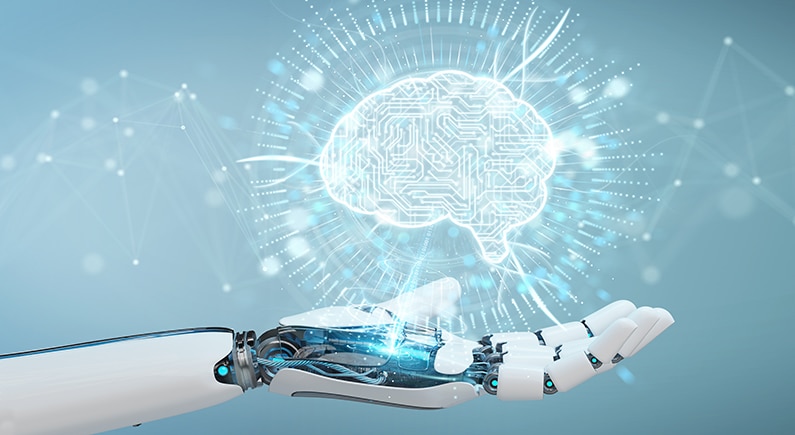
Michael Joe Cini
16th December 2022
From Blockchain to Robots: Ways Tech has Advanced Medicine in 2022
New technology is rapidly transforming the healthcare sector and the pace of innovation appears to be accelerating. Over the past year, there have been numerous advances that have helped to improve patient care, provide more accurate results and assisted clinicians in developing more effective treatment plans.
In our previous article, we discussed the use of remote patient monitoring, Med-Tech in mental health, DNA sequencing, artificial intelligence, and neurotechnology. Below, we examine some of the other influential developments of the year.
Electronic Health And Medical Records
These are the software programs used to store and manage medical information. It creates a single, centralized database of patient information, thus making it easier for providers to access and share information about their patients. While these computer-based systems are not new, they became popular in recent years, having been shown to improve healthcare quality, increase the efficiency of healthcare providers, and help to reduce medical errors. EHRs and EMRs have since then been adopted and used by many healthcare facilities in the storage and management of medical information.
Although due to their high cost, they are yet to be used in many medical facilities, they have proven to improve the delivery of care to patients. They enhance communication between healthcare providers, increase the efficiency of providers, and help prevent medical errors. An earlier report by ReportLinker estimated that the global electronic medical records markets will grow at a compound annual growth rate (CAGR) of 8 percent and rise from $31.78 billion in 2021 to $34.3 billion in 2022.
Blockchain In Healthcare
Blockchain technology has in recent years become the talk of the town. Blockchain’s ubiquity gradually becomes evident as it is widely adopted in many fields. Initially, it is thought to be limited to supporting digital currencies, but blockchain’s benefits exceed this, as it has been found to speed up medical credentialing and transforms patient medical records into a decentralized system that can’t be tampered with, while also allowing doctors from different locations to view the same data in real time, thereby improving decision-making.
Blockchain empowers patients to assume ownership of their medical data and prohibits healthcare providers from accessing information without the patient’s permission. It helps in the recruitment of participants for clinical trials, supporting reliable and auditable documentation of clinical trials with its immutable records, and spotting counterfeit drugs. In an actual sense, blockchain’s usefulness in healthcare is inexhaustible; it is already being used in health record keeping and clinical trials. Currently, blockchain’s application is being tested in several aspects of medicine.
Robotic Technology
Although Robotics in medicine is primarily used in the operating room (OR), there are other areas of healthcare where the technology is being used. The adoption which has been sluggish over decades has recently caught up with the pace of other technologies. Although there are still reservations about the use of robots in medicine, their adoption and use has been on the rise.
They range in complexity of activities, from laboratory robots that deal with medications to surgical robots that perform surgeries or procedures on their own, to robots that care for patients after surgery. Surgical robots help to improve accuracy and reduce human error, optimising patient management.
More recently, the concept of telesurgery has increased in popularity. While the first-ever demonstrated telesurgery took place in 2001, the technique only gained prominence in 2020, and this could be linked to the pandemic.
Digital Therapeutics
Digital Therapeutics have made significant growth since arriving on the healthcare scene. The technology has been used in the treatment of a wide range of diseases, from substance abuse disorders to the management of chronic diseases. These sophisticated software programs can be used in patient education, medication adjustment, symptom monitoring, and behavioural changes.
In the early stage, digital therapeutics were faced with many challenges, including the inability to distinguish them from other software products and the assumption that they were limited in function. However, in 2019, Voluntis got FDA approval for two of its apps: Insulia which help with insulin dose titration for Type 2 diabetes patients, and Oleena, helping patients manage cancer symptoms. In 2021, AppliedVR also got FDA clearance for virtual reality software to treat chronic lower back pain.
As patients use these apps, their health data is reported back to their doctors, allowing the physicians to monitor patients with fewer hospital visits.
Precision Medicine
Precision medicine is an approach to the treatment and prevention of diseases that takes into account individual variability in genes, environment, and lifestyle. As medical technology advances, precision medicine is becoming stronger and increasingly personalized.
Taking into consideration the uniqueness of each person, precision medicine delivers focused, customized treatment. Currently, precision medicine is most advanced in oncology, however, it is already being tested in the treatment of infections, and rare and genetic diseases.
Metaverse and Virtual Reality (VR)
VR has demonstrated effectiveness in the management of phobias and anxiety disorders. Likewise, the metaverse could potentially revolutionize mental health treatment. The serene, immersive virtual experience provided by the metaverse could be helpful in the treatment of conditions like psychosis, delusion, hallucinations, eating disorders, and other mental disorders. Aside from mental health, with its capability to alter the patients’ perceptions and perceptions of pain, virtual reality is becoming popular in chronic pain management.
Augmented reality (AR) and virtual reality (VR) simulations are also being used in medical and surgical training to help both students and residents hone their crafts and face various technical challenges and complications. Additionally, digital twins in the metaverse could be used by healthcare providers to predict how patients will react to medications, recover from illness, or rehabilitate after surgery.




